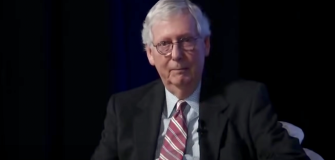The critical race theory battle takes another turn
Share
Last year, over a dozen red states passed laws colloquially termed “critical race theory bans.” These laws were fueled by the widespread dismay of parents regarding the politicized and racialized lessons they saw when the classroom was Zoomed into their living room. The anti-CRT political passion of 2021 has since substantially diffused, but a new report published by the American Association of Colleges for Teacher Education suggests, despite itself, that these laws did not go far enough.
The report, titled “The State of Education Censorship in Institutions of Higher Ed and Implications for the Field,” fails to demonstrate evidence of censorship in higher education. But it succeeds in dripping with self-righteous contempt for Republican legislators and the constituents they represent — raising the question of why any conservative policymaker would continue to grant a teacher-training monopoly to institutions captured by ideologues who hate them.
Republican legislators voted for “CRT bans” because they contained straightforward clauses prohibiting the promotion of racism. Clauses declaring that schools shall not teach that “one race or sex is inherently superior to another race or sex,” or teach that “moral character is necessarily determined” by race. Anyone who reveres the Constitution’s guarantee of equal protection and affirms the legacy of the civil rights movement should support such straightforward stipulations. But of course, the CRT movement was launched on the premise that civil rights laws shored up white supremacism and on a commitment to leverage the language of liberalism to undermine liberalism.
The AACTE report is clearly written from CRT premises. It declares that the CRT bans are of a piece with the “proliferation of white supremacist groups” that followed the Brown v. Board of Education decision and that they represent an American tradition of “pervasive intimidation and terror used to maintain inequitable education practices then and now.” According to the AACTE, laws insisting that schools not teach that “an individual should be discriminated against … solely or partly because of his or her race” actually “underscores the ever-present bigotry” of our education system and are how “suppressive and oppressive ideologies persist.” These laws have “criminalize[d] students” of color and “exploit[ed] White, sexually heterogeneous and gender-normative students” and restricted the ability of teachers “to live within their own identities.”
How, exactly? The report doesn’t quite make that clear. Rather, it echoes the pro-CRT party line: CRT is not taught in schools and it’s a good thing that it is. Even as it insists that “CRT has not been used by [K]-12 educators,” it also declares that these bans have effectively prohibited “anti-racist curriculum.”
When it comes to laws such as Florida’s Parental Rights in Education Act, which prohibits explicit instruction in matters of sexual orientation and gender identity for students in kindergarten through third grade, the AACTE declares that such laws “perpetuate violence on the LGBTQ+ community” and “marginaliz[e] communities that live at the intersectionality of race, sex, and gender (e.g., two spirit persons and societies).” Again, however, waiting until fourth grade to discuss gender identity or sexual orientation marginalizes two-spirit societies is not expressly delineated.
The AACTE sums up its case by insisting that state policymakers who “lack the qualifications” to make educational judgments have committed “state-sanctioned curricular violence against students.”
But state legislators receive all the qualifications they need from the people who elect them. Whereas a smart policymaker might well ask: What exactly qualifies education schools to train teachers? There is certainly no robust evidence suggesting that requiring teachers to receive education degrees confers substantial academic benefits on students. There is, however, plenty of evidence that schools of education are bastions of far-left ideology. Indeed, it is hard to imagine how the AACTE could have made a better case against itself than by publishing this report.
State legislators can be forgiven for having not noticed the ideological capture of teachers’ colleges before the CRT controversy boiled over into public view. But, at this point, they should realize that although the CRT bans were a strong step in the right direction, they don’t address the “root causes” of wokeness in public education. A big part of the reason why some teachers bring their political activism into the classroom is that they were trained and socialized to do so by teachers’ colleges. Fortunately, the National Association of Scholars, along with a coalition of center-right organizations,
recently proposed
excellent model legislation to break their monopoly on teacher preparation. Here’s hoping that state legislators do their homework and take action.
Continue Reading at The Washington Examiner.













